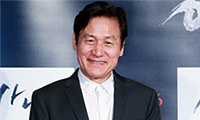
Russia has millions of heroin addicts but little agreement on how to treat them.
By MICHAEL SCHWIRTZMOSCOW - The conference seemed innocuous enough: a Moscow hotel, slide shows and several dozen specialists gathered to discuss how to treat heroin addiction. But then members of a Kremlin youth group called the Young Guard arrived, crowding the hotel’s entrance and denouncing the participants as criminals and paid agents of the West.
The focus of their outrage was methadone, a drug prescribed by doctors around the world to wean addicts from heroin.
A synthetic form of opium, methadone is central to a therapy endorsed by the United Nations and 55 countries, including the United States.
But not Russia.
Methadone, typically taken by mouth in liquid form, blocks addicts’ cravings for heroin by binding to the brain’s opioid receptors.
Methadone has critics in many countries, who argue that it replaces one form of opiate addiction with another; in Russia even talking about it can provoke legal sanction.
“There is no possibility to have a normal discussion about this issue,” said Dr. Vladimir D. Mendelevich, director of the Institute for Research Into Psychological Health, in Kazan .
Estimates on the number of drug addicts in Russia range from three million to six million. Most use intravenous drugs like heroin that originate in Afghanistan and flow easily across the country’s borders.
Many international experts say methadone treatment is critical to controlling the epidemic of H.I.V. and AIDS in Russia, which is linked to heroin use. Coupled with needle exchange , the therapy could “largely stop the spread of H.I.V. among injecting drug users,” said Peter Piot, the executive director of Unaids, the United Nations agency .
Russia’s health establishment is not impressed.
At the same AIDS conference, Dr. Gennady G. Onishchenko, the country’s chief sanitary doctor , said health officials “are not convinced that this is effective,” and added, “There is little optimism for legalizing methadone therapy in the near future.”
But some Russian specialists, along with addicts, have begun to change their minds.
“Scientific arguments, evidencebased data, are not convincing them,” said Evgeny M. Krupitsky, the head of a laboratory that conducts research on drug addiction at St. Petersburg State Pavlov Medical University. Russian methodology regarding opiate addiction “is not evidence-based,” but relies on “subjective opinions of major leaders in this field.”
Researchers agree that only a small fraction of heroin users in Russia seek treatment. Most who do - some say more than 90 percent - relapse into drug use shortly after leaving. At such detoxification centers, doctors encourage immediate abstinence from drug use, rather than the gradual process that methadone substitution therapy entails.
Supporters of methadone treatment argue that if properly administered by medical professionals, the treatment method breaks addicts’ dependence on illegal narcotics and eases withdrawal symptoms, while decreasing the risk of overdose and H.I.V. ransmission.
“I am for any scientific, medical approach to treatment,” said Albert Y. Zaripov, a former heroin addict who counsels users in Kazan.
He began shooting heroin more than a decade ago with a group of 10 friends. Four are in jail, another four remain chained to their addictions, and two died. He alone quit, but after he had contracted H.I.V.
“If there is another treatment besides substitution therapy, there’s no problem,” he said. “But I haven’t heard of anything else that has helped or that is more effective.”
스마터리빙
more [ 건강]
[ 건강]이제 혈관 건강도 챙기자!
[현대해운]우리 눈에 보이지 않기 때문에 혈관 건강을 챙기는 것은 결코 쉽지 않은데요. 여러분은 혈관 건강을 유지하기 위해 어떤 노력을 하시나요?
 [ 건강]
[ 건강]내 몸이 건강해지는 과일궁합
 [ 라이프]
[ 라이프]벌레야 물럿거라! 천연 해충제 만들기
 [ 건강]
[ 건강]혈압 낮추는데 좋은 식품
[현대해운]혈관 건강은 주로 노화가 진행되면서 지켜야 할 문제라고 인식되어 왔습니다. 최근 생활 패턴과 식생활의 변화로 혈관의 노화 진행이 빨라지고
사람·사람들
more많이 본 기사
- 폭설 속 산행 비극… 마운트 볼디서 3명 조난 사망
- 안성기, 1월 1일 생일 하루 앞두고 심정지 상태 병원 이송..쏟아지는 응원
- “10년간 모든 이민 전면 금지?” 황당 주장
- ‘故장제원 아들’ 노엘 “구치소서 58kg→95kg” 모습 보니
- 가주 판매 간 소고기 ‘이콜라이’ 오염
- [알림] 오늘 신년특집 발행, 연방 공휴일인 새해 1월1일자 신문은 발행되지 않습니다.
- ‘아듀~ 2025!’… 희망찬 새해로
- LA 북쪽 테혼 카지노서 하룻새 10만불 ‘연속 잭팟’
- 전남대 신년회
- 원·달러 환율… 연평균 기준 ‘역대최고’ 마감
- 문소리, 아이유 이어 강하늘 엄마 된다..영화 ‘국제시장2’ 합류
- 신년 연휴 폭풍우… 비 3인치 온다
- [연말 기획] 한국계 혼혈들 두각… 각 분야에서 ‘맹활약’
- 우크라 ‘푸틴 관저 공격설’에 종전 기대감 찬물
- 한국팀 뛸 곳인데… 강력범죄 ‘충격’
- 알고보니 ‘완전식품’인 고구마의 놀라운 효능
- 트럼프 “베네수엘라 마약 싣는 항만 타격”… 첫 지상 공격
- ‘케네디’가 또 비극 외손녀 희귀암 별세
- 위너 송민호, 병역법 위반 혐의 불구속 기소
- ‘백두산 호랑이’ 대가족 포착… “매우 희귀한 일”
- ‘헤비급 복서’ 조슈아 구사일생 동승자 2명 사망사고에도 경상
- 트럼프 이름 덧붙인 ‘케네디센터’ 공연 줄취소
- “라면, 못 끊겠다면 ‘이거’라도 넣어라”
- [조지 F. 윌 칼럼] 저무는 2025년에 안도의 한숨
- 임영웅, 2025년에도 빛난 ‘히어로’..음악·예능·공연 모두 잡았다
- [연말 화제] 올해도 찾아온 ‘얼굴 없는 천사’
- 명품의 힘… 현대백화점 판교점 연매출 2조 찍었다
- 구리선 절도범 소행에 LA 교통 통신망 ‘먹통’
- 샴페인, 마지막 날과 첫날을 위하여
- “치매에 치즈가 좋대서 맨날 먹었는데”… 고지방 주의
- [경제 트렌드] AI 열풍 속에 신흥 2030 억만장자 급증
- [미국은 지금] 책임 있는 자본 없으면 커뮤니티 미래도 없다
- 중국, 올해 신차판매 1위… 일본 ‘20년 아성’ 깼다
- [만화경] 경영자의 ‘문제적’ 사과
- [수요 에세이] 다시, 제자리로 돌아와서
- 오픈AI에 400억불 투자 소프트뱅크가 10% 지분
- 기아, 타임스퀘어 새해 전야 참여
- 메트로카드, 31년만에 역사 속으로
- [인터뷰-문경환 한인회장] “캔자스, 이민자들에 제2의 기회의 땅”
- SI “김하성 영입은 A-” 수비력 유지·공격력 향상
- [한인 은행장 신년사 통해 본 비전과 경영 목표] “끊임없는 변화와 혁신으로 안정적 성장 도모”
- 사실상 고객 1인당 1만원… “생색내기 보상으로 불신만 키워”
- 연방정부, 기업 채용·승진정책 조사
- 목표는 1,000골… 불혹 호날두 “부상 없다면 가능”
- 이강인 뛰는 PSG, ‘2025 최고의 팀’
- 케이스쉴러 주택가격지수 상승
- 내년 1월부터 달라지는 MD 법안들
- 요키치 부상… 덴버, 마이애미에 덜미
- SNS, 뉴스 매체로도 인기 틱톡·유튜브·페이스북 등
- 동포청 ‘재외동포 이해교육’ 실시
1/5지식톡

-
 미 육군 사관학교 West Poin…
0
미 육군 사관학교 West Poin…
0https://youtu.be/SxD8cEhNV6Q연락처:wpkapca@gmail.comJohn Choi: 714-716-6414West Point 합격증을 받으셨나요?미 육군사관학교 West Point 학부모 모…
-
 ☝️해외에서도 가능한 한국어 선생님…
0
☝️해외에서도 가능한 한국어 선생님…
0이 영상 하나면 충분합니다!♥️상담신청문의♥️☝️ 문의 폭주로 '선착순 상담'만 진행합니다.☎️ : 02-6213-9094✨카카오톡ID : @GOODEDU77 (@골뱅이 꼭 붙여주셔야합니다…
-
 테슬라 자동차 시트커버 장착
0
테슬라 자동차 시트커버 장착
0테슬라 시트커버, 사놓고 아직 못 씌우셨죠?장착이 생각보다 쉽지 않습니다.20년 경력 전문가에게 맡기세요 — 깔끔하고 딱 맞게 장착해드립니다!장착비용:앞좌석: $40뒷좌석: $60앞·뒷좌석 …
-
 식당용 부탄가스
0
식당용 부탄가스
0식당용 부탄가스 홀세일 합니다 로스앤젤레스 다운타운 픽업 가능 안녕 하세요?강아지 & 고양이 모든 애완동물 / 반려동물 식품 & 모든 애완동물/반려동물 관련 제품들 전문적으로 홀세일/취급하는 회사 입니다 100% …
-
 ACSL 국제 컴퓨터 과학 대회, …
0
ACSL 국제 컴퓨터 과학 대회, …
0웹사이트 : www.eduspot.co.kr 카카오톡 상담하기 : https://pf.kakao.com/_BEQWxb블로그 : https://blog.naver.com/eduspotmain안녕하세요, 에듀스팟입니다…
케이타운 1번가
오피니언
 정숙희 논설위원
정숙희 논설위원샴페인, 마지막 날과 첫날을 위하여
 조지 F·윌 워싱턴포스트 칼럼니스트
조지 F·윌 워싱턴포스트 칼럼니스트 [조지 F. 윌 칼럼] 저무는 2025년에 안도의 한숨
 김동찬 시민참여센터 대표
김동찬 시민참여센터 대표 [미국은 지금] 책임 있는 자본 없으면 커뮤니티 미래도 없다
 성영라 수필가 미주문협 부이사장
성영라 수필가 미주문협 부이사장 [수요 에세이] 다시, 제자리로 돌아와서
 신경립 / 서울경제 논설위원
신경립 / 서울경제 논설위원 [만화경] 경영자의 ‘문제적’ 사과
 문태기 OC지국장
문태기 OC지국장 한인 정치력 업그레이드 기대
 민경훈 논설위원
민경훈 논설위원세계 역사를 바꾼 동물
 박홍용 경제부 차장
박홍용 경제부 차장 한인사회가 주목해야 할 새해 경제
 박영실 시인·수필가
박영실 시인·수필가 [화요칼럼] 피드백
1/3지사별 뉴스

메트로카드, 31년만에 역사 속으로
1994년 처음 등장해 지난 31년간 뉴욕시 전철과 버스 승차권으로 쓰인 메트로카드가 31일을 끝으로 역사 속으로 사라진다. 더 이상 메트로카…
■ 사고- 한동대·뉴욕한인청소년센터 국제여름캠프

2025 워싱턴지역 10대 뉴스
다사다난했던 2025년이 하루만 남겨둔 채 역사의 저편으로 저물고 있다. 올해의 가장 큰 뉴스는 트럼프 2기 행정부 출범과 함께 몰아친 이민 …
내년 1월부터 달라지는 MD 법안들

셀폰 위치추적, 납치된 딸 살렸다… ‘부모 통제’ 기능 활용
스마트폰에서 자녀의 위치를 확인할 수 있는 ‘부모 통제(parent control)’ 위치 추적 기능의 도움으로 납치됐던 청소년들이 잇달아 구…
[새해부터 이렇게 달라진다] 최저임금 또 오르고… 유급 병가는 더 확대

오늘 하루 이 창 열지 않음 닫기 




















































.png)


댓글 안에 당신의 성숙함도 담아 주세요.
'오늘의 한마디'는 기사에 대하여 자신의 생각을 말하고 남의 생각을 들으며 서로 다양한 의견을 나누는 공간입니다. 그러나 간혹 불건전한 내용을 올리시는 분들이 계셔서 건전한 인터넷문화 정착을 위해 아래와 같은 운영원칙을 적용합니다.
자체 모니터링을 통해 아래에 해당하는 내용이 포함된 댓글이 발견되면 예고없이 삭제 조치를 하겠습니다.
불건전한 댓글을 올리거나, 이름에 비속어 및 상대방의 불쾌감을 주는 단어를 사용, 유명인 또는 특정 일반인을 사칭하는 경우 이용에 대한 차단 제재를 받을 수 있습니다. 차단될 경우, 일주일간 댓글을 달수 없게 됩니다.
명예훼손, 개인정보 유출, 욕설 등 법률에 위반되는 댓글은 관계 법령에 의거 민형사상 처벌을 받을 수 있으니 이용에 주의를 부탁드립니다.
Close
x